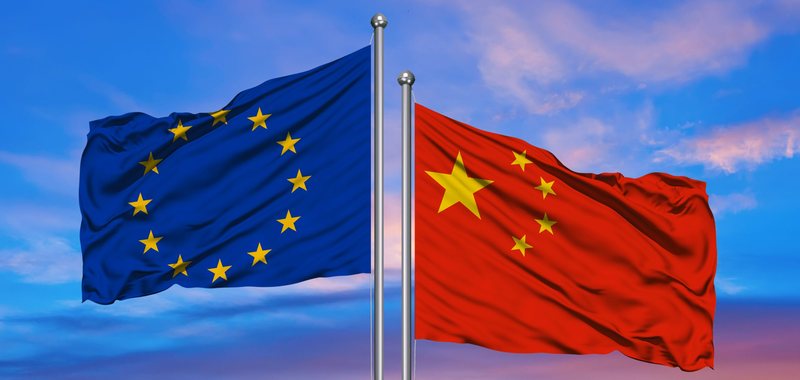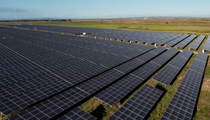The EU will set a stricter fiscal path in the Netherlands to balance its budget!

The European Union will impose a stricter fiscal path on the Netherlands, forcing it to limit its spending more aggressively after the traditionally fiscally disciplined country ignored recommendations from the bloc's executive arm.
The government in The Hague presented a medium-term plan for the next four years that exceeded the trajectory given as a reference by the European Commission last June, Vice President Valdis Dombrovskis told reporters. That trajectory provided by the EU executive will now become binding.
The commission on Tuesday signed off on most of the region's 2025 budgets and medium-term plans submitted by EU member states, which for the first time were assessed under the bloc's new fiscal regulation.
The rules give national governments more leeway to set their own adjustment path to reduce their deficit and debt levels below the reference values of 3% and 60% of gross domestic product respectively. The regulation also now contains a more robust enforcement system.
The Netherlands proposed an average increase in net spending of 4.2% per year over its four-year plan, compared to the 3.2% reference trajectory issued by the commission, Dombrovskis said. For this reason, the commission concluded that the Dutch budget for the next year is contrary to its recommendations.
After talks between The Hague and Brussels, the commission proposed that the Dutch government respect the spending ceiling recommended in June. The recommendation must be confirmed by the Council, which brings together member states, in the coming weeks. The commission also found France's budget for next year in line with Brussels' recommendations and extended the timeline to reduce its public debt from four to seven years, as Bloomberg previously reported.
Dombrovskis said the Paris medium-term proposal is more demanding than the EU executive recommended given the worsening initial position compared to June, with the deficit now forecast at over 6% of GDP. As a result, France's net spending increase will be only 1.1% of GDP compared to the 1.6% recommended by the commission. "It is important that France has ambitious fiscal plans," he said.
In the case of Germany, Dombrovskis said that he has been in contact with the country's new finance minister, Joerg Kukies, who, since early elections are scheduled for February 23, will request another extension for the presentation of fiscal plans. For the eurozone group of economies as a whole, the commission recommends that governments continue to reduce the levels of debt accumulated in previous years to overcome the Covid pandemic and the energy crisis.
However, maintaining tight budgets and massive investment clashes the bloc faces could reach 800 billion euros ($842 billion), according to former European Central Bank president Mario Draghi. The commission argues that despite limited spending, national governments will be able to keep their public investments afloat thanks to billions of euros coming from the EU's post-pandemic recovery fund.

Emiratet e Bashkuara Arabe konsiderojnë planin e BE-së për të ndëshkuar ndotësit për herë të parë!
Ministria e Ndryshimeve Klimatike dhe Mjedisit të Emirateve të Bashkuara Arabe po shqyrton opsionet e propozuara nga Agjencia e Mjedisit e Abu Dhabit për një......

'Unusual and extreme' - What do the experts predict for this winter in Europe?!
Last week parts of Europe saw the first major snowfall of the season, with severe weather warnings in place in the UK, Ireland and France. This was......

Which European countries are best prepared for a cashless future?!
Europe's Nordic countries are better prepared for a cashless future than the rest of Europe, a new analysis has shown. Finansplassen, a Norwegian finance......

Bitcoin on the decline? Analysts believe Bitcoin's uptrend is not over!
The price of Bitcoin has fallen sharply over the past 24 hours, falling 3.6% to just over $94,000 (€89,000) at 5:30 am CET. The pullback appears to have been......

EU-China trade relations escalate - The next product at the center of tariffs is alcoholic beverages!
The EU Commission said it had formally brought provisional anti-dumping measures imposed by China on EU cognac imports to the World Trade Organization, the......

"Protectionist policies threaten global trade" - EBRD report: Industrial policy has turned into revenge
A global resurgence of industrial policies aimed at promoting or protecting domestic interests threatens international cooperation and could particularly......

Filters, or a ban on Tik Tok and Snapchat? - The public consultation between the Council of Parents and the Government begins
Prime Minister Edi Rama together with the Minister of Education and Sports, Ogerta Manastirliu held a public discussion at the "Sami Frashëri" school, with a......

Manufacturing businesses towards innovation and digitization - Project, production costs are reduced, competition is increased
Domestic manufacturing and exporting businesses will be supported to move towards innovative practices and investments, in order to increase productivity and......


















